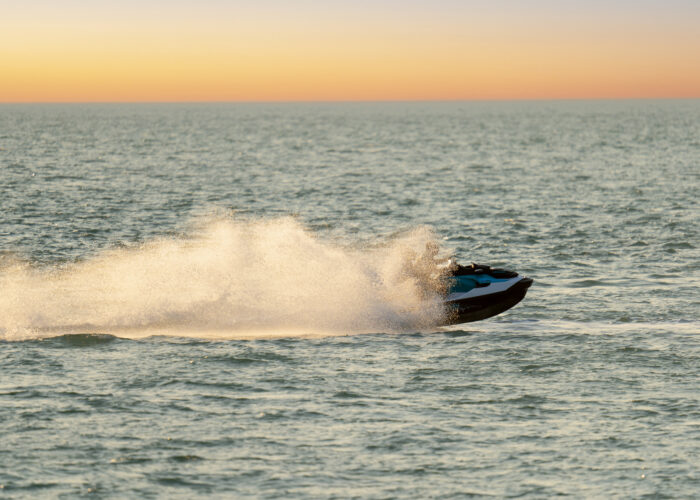
Boat Accident Lawyer in Beaufort
A day on the water can quickly turn into a nightmare when a boat accident occurs. If you’ve been injured in a boat accident in Beaufort, the boat accident lawyers at Ward and Smith are ready to help. We’ll work with you to hold responsible parties accountable and pursue fair compensation for your injuries. Call us at (919) 827-8475 to schedule your free consultation and take the first step toward justice.
How to Prove Liability in a Boating Accident Case
Boating accidents can happen for many reasons, from operator error to equipment failure. When an accident results in injuries or damage, determining who is responsible is a critical part of pursuing compensation. However, proving fault in a boating accident can be challenging. Unlike car accidents, which are governed by detailed traffic laws, boating rules can vary based on the location and the type of vessel involved.
Identifying the Cause of the Accident
To establish liability, it is first necessary to determine what caused the accident. Some common causes include:
- Operator negligence: This includes speeding, failing to follow navigational rules, or operating a vessel under the influence of alcohol or drugs.
- Inexperienced operation: Boaters without adequate training or experience can make dangerous mistakes.
- Equipment failure: Defective or poorly maintained equipment, such as a faulty engine or steering mechanism, can lead to accidents.
- Hazardous water conditions: Unmarked obstacles, strong currents, or shallow waters can also contribute to boating accidents.
Identifying the cause is critical because it helps pinpoint the parties who may be responsible.
Understanding Negligence in Boating Accidents
Liability in most boating accident cases hinges on negligence. In legal terms, negligence occurs when a person fails to exercise the level of care that a reasonable person would in a similar situation, leading to harm.
For example, if a boat operator fails to keep a proper lookout or ignores no-wake zones and causes a collision, their actions may be deemed negligent. Similarly, a boat owner who neglects routine maintenance may be held accountable if mechanical failure results in an accident.
Key Evidence to Support Your Claim
Building a strong case for liability requires gathering evidence to demonstrate how the accident occurred and who is at fault. The following types of evidence can be especially helpful:
- Accident Reports
A report filed with local authorities or the U.S. Coast Guard is often a critical piece of evidence. It provides an official account of the incident, including details about the location, conditions, and those involved. - Eyewitness Testimony
Statements from witnesses can help establish what happened before, during, and after the accident. This can include accounts from passengers, nearby boaters, or individuals onshore. - Photographs and Videos
Photos or videos of the scene, the vessels involved, and any visible injuries or property damage can be persuasive evidence. Be sure to document the conditions at the time of the accident, such as weather, water traffic, and visibility. - Navigation Records
Many modern boats are equipped with GPS devices that track speed, location, and routes. These records can help verify whether a boat operator was speeding or navigating recklessly. - Maintenance Records
If equipment failure contributed to the accident, maintenance records can help determine whether the boat owner properly maintained the vessel or if a manufacturer defect was involved. - Toxicology Reports
If alcohol or drug use is suspected, toxicology reports from the boat operator can provide critical evidence of impairment.
Proving Liability Through Maritime Laws
Boating accidents are often governed by maritime laws, which differ from the laws that apply to car accidents. Navigational rules, also known as the “Rules of the Road,” set guidelines for safe boating practices. For instance, boaters must maintain a safe speed, avoid collisions, and properly display lights after sunset.
If an operator violates these rules and causes an accident, their actions may be considered negligent. A knowledgeable attorney can analyze the circumstances of your accident and identify any violations of maritime laws.
Shared Liability in Boating Accidents
In some cases, more than one party may share responsibility for a boating accident. For example, if two boat operators collide while both are speeding, liability may be divided between them.
North Carolina follows the rule of contributory negligence. Under this rule, if you are found to have contributed to the accident in any way, even minimally, you may be barred from recovering compensation. This makes it even more important to build a strong case that clearly demonstrates the fault of the other party.
The Role of an Attorney in Proving Liability
Proving liability in a boating accident is a complex process that often requires legal expertise. An experienced personal injury attorney can help you:
- Investigate the accident by gathering evidence, interviewing witnesses, and reviewing maintenance and navigation records.
- Consult with experts, such as accident reconstruction specialists or maritime law professionals, to strengthen your case.
- Handle communication with insurance companies and opposing attorneys to protect your rights.
An attorney can also navigate the intricacies of state law, federal law, and maritime law, ensuring that your case is handled properly and that all legal deadlines are met.
Pursue Justice with a Beaufort Boat Accident Attorney
After a boat accident, having an experienced legal team on your side can make all the difference. The boat accident attorneys at Ward and Smith are committed to helping you seek justice and hold negligent parties accountable. Don’t wait—call us at (919) 827-8475 for a free consultation and let us fight to secure the compensation you deserve.
Featured News
View All
